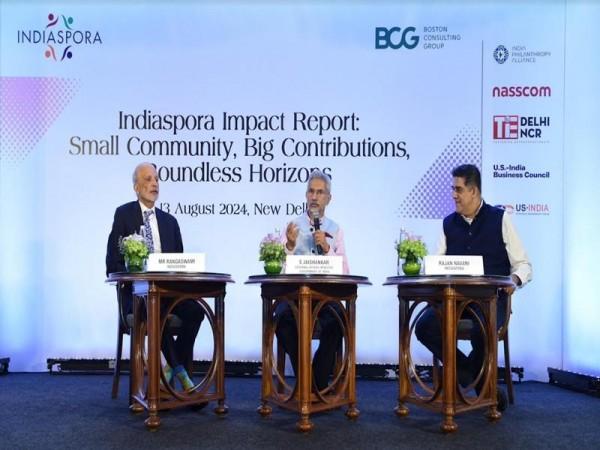
External Affairs Minister (EAM) S. Jaishankar on Tuesday said that the Indian diaspora can help create synergy for digital collaborations for the world economies while helping the country create the necessary skilled pool for emerging technologies.
Speaking at the launch of the 'Indiaspora BCG Impact Report' in the national capital, the EAM said that the diaspora can create a level of comfort and trust in critical areas, which has the potential to take world relationships to the next level.
When it comes to skilling, "diaspora can make a valuable contribution by creating a bond, a digital connection in various areas like AI. It will help create a skilled pool as envisioned in the Union Budget 2024-2025 by Prime Minister Narendra Modi", EAM Jaishankar told the gathering.
The Budget laid emphasis on the Prime Minister's package of five schemes and initiatives to facilitate employment, skilling and other opportunities for 4.1 crore youth over a 5-year period, with a Central outlay of Rs 2 lakh crore.
EAM Jaishankar said that as India charts the future on semiconductors and associated areas, including chip designing, key figures in the Indian diaspora are the key drivers of these advanced technologies.

"Several key collaborations in the field of semiconductors are currently happening in the country – from establishing ATMP (Modified Assembly, Testing, Marking, and Packaging) units to chip designing. Global Capability Centres (GCC) are making India their new hub. And the role of the diaspora is commendable towards this," said the Minister.
India has over 1,580 GCCs with an addition of multiple GCCs every quarter, as companies navigate the complexities of today's business environment. India has consistently maintained its status as one of the fastest-growing large economies which has positively impacted the office demand among the GCCs.
On artificial intelligence (AI), S. Jaishankar said that ironically, it is AI which requires "very trusted human relationships" for collaborations to advance internationally.
EAM Jaishankar said that he sees a myriad of global economic challenges and it is necessary to go back to the drawing board and look at these scenarios -- climate, technology, economic dependency, globalisation -- from a new perspective to find solutions.
(With inputs from IANS)

















